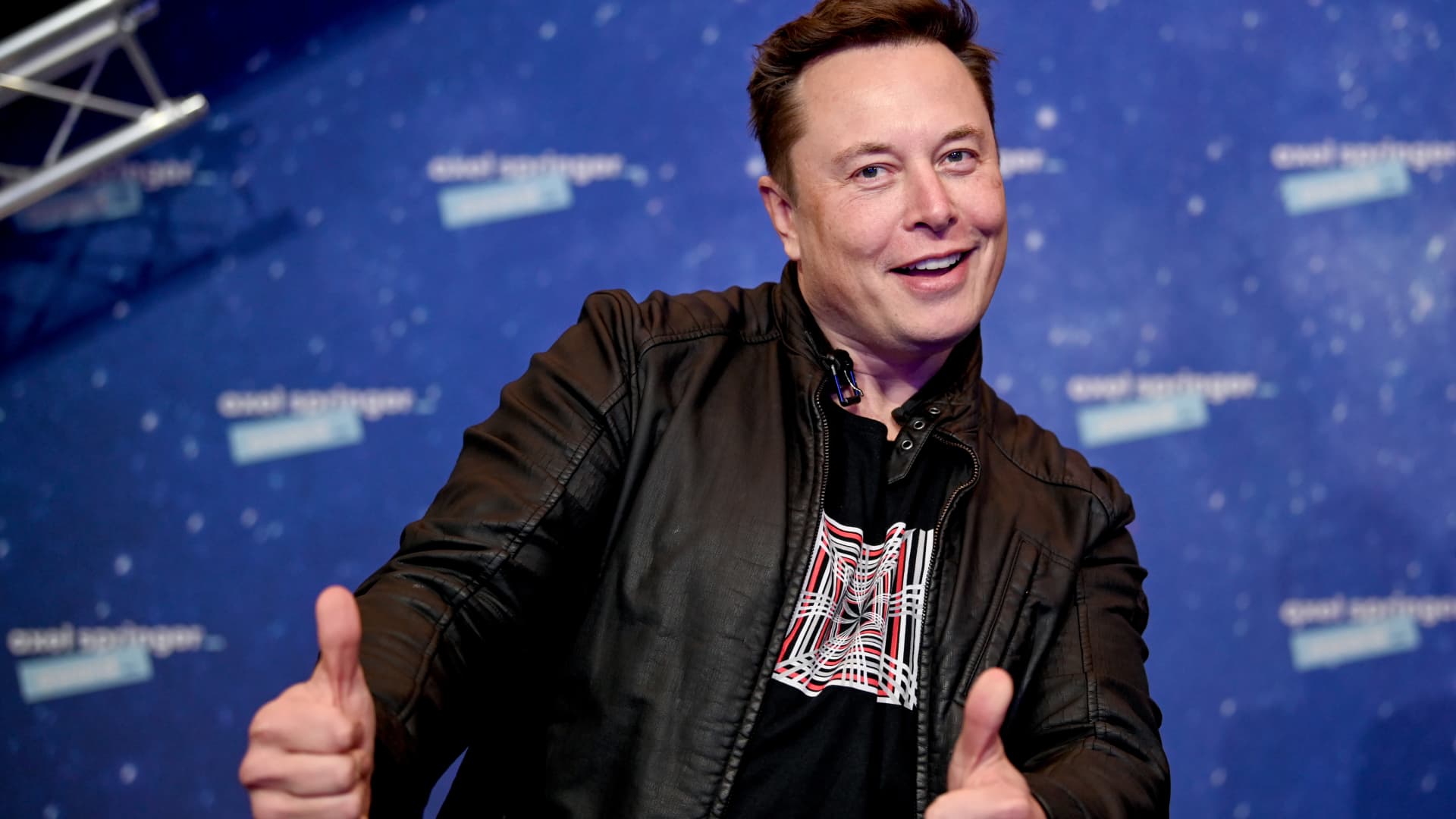
SpaceX owner and Tesla CEO Elon Musk arrives on the red carpet for the Axel Springer Award 2020 on Dec. 1, 2020 in Berlin, Germany.
Britta Pedersen | Getty Images
Shares of Tesla rose sharply in U.S. premarket trading on Monday after the electric car maker passes a significant milestone to roll out its full self-driving technology in China.
The company’s share price spiked more than 10% just after 7:30 a.m. ET, as investors reacted to news surrounding Tesla CEO Elon Musk’s visit to China.
Tesla on Sunday said that local Chinese authorities removed restrictions on its cars after passing the country’s data security requirements.
The move raised expectations that Tesla’s driver-assistance software Full Self Driving (FSD) would soon be available in the country, which is the largest market for electric vehicles.
While Tesla’s electric cars are some of the most popular vehicles in China, they have reportedly been banned from some government-related properties due to data security concerns.
Separately, the Biden administration earlier this year announced a probe into whether imported cars from China pose national security risks due to their ability to potentially collect sensitive data.
FSD is an upgrade to Tesla’s Autopilot driver assistant. Tesla has offered its FSD technology in China for years, but with a restricted feature set that limits it to operations, such as automated lane changing.
Data security concerns have been a key obstacle preventing Tesla from achieving a full rollout of the system in China.
Tesla also reportedly scored a deal with Baidu that would give Musk’s firm access to the Chinese internet giant’s mapping and navigation technology for Tesla’s FSD feature.
The agreement would allow Tesla to tap into Baidu’s mapping service license, which is a requirement for intelligence driving systems to operate on public roads in China, Reuters reported, citing two anonymous sources familiar with the matter.
CNBC was unable to independently verify the report. Tesla and Baidu were not immediately available for comment.
With the license, which foreign companies can only clinch in partnership with local Chinese firms, Tesla will be allowed to legally operate FSD on Chinese roads, and its fleets will be able to gather data about traffic, road signs and routes.
The breakthrough for Tesla toward bringing its FSD self-driving technology to China marks a key win for the firm at a time when it is facing hefty competition in the Chinese market. Local rivals such as Warren Buffett-backed electric vehicle maker BYD, Nio, and Xpeng have ramped up their competition with Tesla in recent years.
BYD was temporarily the largest electric vehicle maker globally, producing more than 3 million new energy vehicles in 2023. The firm recently lost its crown as world’s largest EV maker, after a 43% plunge in sales in the first quarter.
– CNBC’s Evelyn Cheng contributed to this report





